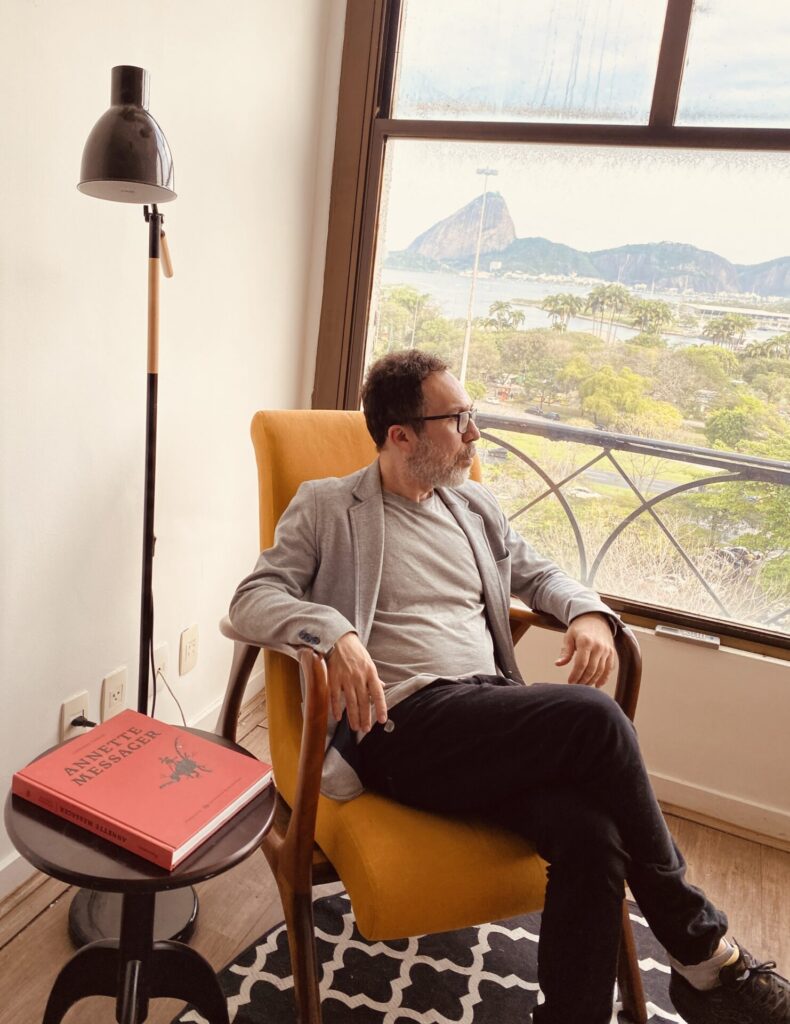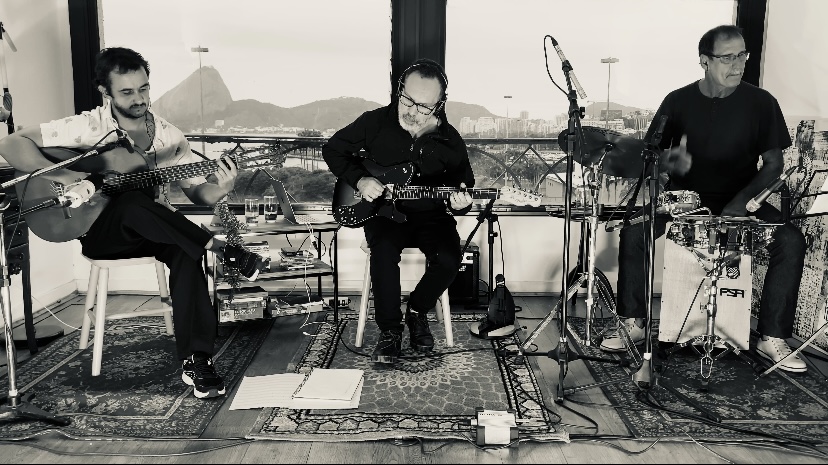Alexandre Elias, one of the most important soundtrack composers in Brazil, and the music director of Cia de Dança Deborah Colker, one the most important dance companies in the world, just released the album #Jobim, featuring songs written by Antonio Carlos Jobim, the composer of “The Girl From Ipanema” and “Desafinado”, in Jazz Lounge beats and Lofi Hip Hop versions. Check out the exclusive interview below:

1. Can you tell us a bit about where you come from and how it all got started?
ALEXANDRE ELIAS: I was born in Rio de Janeiro, Brazil, in a neighborhood called Madureira, in a working class area of the city. In my first 3 years of life, my family and I lived in a favela called Para Pedro, we were very poor. Then we moved to a neighborhood called Irajá, also a working class neighborhood but at the same time a neighborhood with many musicians and samba composers. On every corner there was a group of musicians playing samba. I loved going out to listen to these musicians. From that moment on, my family realized this and my Christmas and birthday gifts were musical instruments and records.
2. Did you have any formal training or are you self-taught?
ALEXANDRE ELIAS: Until I was sixteen years old I was self-taught but then I started studying guitar with a private teacher. At twenty years old I entered maestro Ian Guest’s music school to study Jazz, Contemporary Music, Composition and Orchestration. Then I studied Composition and Arrangement with maestro Moacir Santos.
3. Who were your first and strongest musical influences and why the name ‘ALEXANDRE ELIAS?
ALEXANDRE ELIAS: As a guitarist my first biggest influence was Jimmy Page. I heard Led Zeppelin for the first time when I was 13 years old and it blew my mind. Later I started to become more interested in jazz music and then I started listening to guitarists like Toninho Horta, Pat Metheny and Wes Montgomery. But my main influence as a musician, as a composer, is Antonio Carlos Jobim. As a teenager I heard a Jobim album called “Matita Perê” and that album changed my entire way of making and thinking music.
4. What do you feel are the key elements in your music that should resonate with listeners, and how would you personally describe your sound?
ALEXANDRE ELIAS: Well, I don’t know how to answer that question. It’s a difficult question. What I can tell you is that when I’m creating I don’t know if I’m making good or bad music, I simply make the music I need to make, and I put into that song the things I believe in. I don’t know how to describe my sound, nor could I say which elements make people like my music. I think this is a job for music critics.

5. What has been the most difficult thing you’ve had to endure in your life or music career so far?
ALEXANDRE ELIAS:
The pandemic
6. What’s your view on the role and function of music as political, cultural, spiritual, and/or social vehicles – and do you try and affront any of these themes in your work, or are you purely interested in music as an expression of technical artistry, personal narrative, and entertainment?
ALEXANDRE ELIAS: I think it’s impossible not to see music as a powerful instrument of political and social transformation. In the sixties in Brazil, during the military dictatorship, several composers, singers and musicians were sent into exile because the military knew that the songs those artists wrote had the power to overthrow the government. A song called “Apesar de Você” composed by Chico Buarque was a kind of resistance anthem against that bloody dictatorship. Years later, recently, during Bolsonaro’s neo-fascist government, we artists began to be hunted again and that same song by Buarque once again became an anthem of resistance. I make instrumental music, but during that period I released a single in a collab with actor and director Wagner Moura called “Talking About Marighela” and an album called “Modern World” because I had the need to express in words how everything was affecting us.
7. For most artists, originality is first preceded by a phase of learning and, often, emulating others. What was this like for you? How would you describe your own development as an artist and music maker, and the transition towards your own style, which is known as Jazz?
ALEXANDRE ELIAS: I think originality comes when I’m not afraid to be who I am. My music is the result of who I am and the experiences I have had.
8. Do you feel that your music is giving you back just as much fulfillment as the amount of work you are putting into it or are you expecting something more, or different in the future?
ALEXANDRE ELIAS: Music gave me everything I have and still gives me everything. Everything I am I owe to music.
9. Could you describe your creative processes? How do usually start, and go about shaping ideas into a completed song? Do you usually start with a tune, a beat, or a narrative in your head? And do you collaborate with others in this process?
ALEXANDRE ELIAS: As you know, in addition to my solo work, I am the musical director of one of the most important dance companies in the world, the Companhia de Dança Deborah Colker. I can talk a little about both creation processes. In my work I usually start composing with a melody, which I create by singing, or listening to the notes in my mind. When this melody is ready in my mind, I start playing it on the guitar, I start to find the chords and discover if it is a ballad, a bossa, in short, what song is that that is emerging. In my work with the dance company, the first thing I do is have a conversation with Deborah Colker to understand what she is trying to say with the project for which I am going to make the music. From then on, it’s a constant exchange of ideas, rhythms, tempos, instrumentations that we experiment with. Some things work out and others don’t and then we try new paths. It is a very thought-provoking process.
10. On the contrary, what would you consider a successful, proud or significant point in your life or music career so far?
ALEXANDRE ELIAS: It was certainly the freedom that I managed to gain to make my music the way I want to do it.
11. With social media having a heavy impact on our lives and the music business in general, how do you handle criticism, haters, and/or naysayers in general? Is it something you pay attention to, or simply ignore?
ALEXANDRE ELIAS: I really don’t care about these things.
12. Creative work in a studio or home environment, or interaction with a live audience? Which of these two options excites you most, and why?
ALEXANDRE ELIAS: Definitely the recording studio. It’s where I spend hours creating, experimenting, recording in different ways, editing in different ways. Just me and the music. The studio is where I have the most fun.
13. Do you think is it important for fans of your music to understand the real story and message driving each of your songs, or do you think everyone should be free to interpret your songs in their own personal way?
ALEXANDRE ELIAS: Oh no, no one should have to understand music the way it should be understood. Each person receives and understands in a different way, they understand it based on their own life experiences.
KEEP IN TOUCH:
FACEBOOK | INSTAGRAM | SPOTIFY | YOUTUBE

